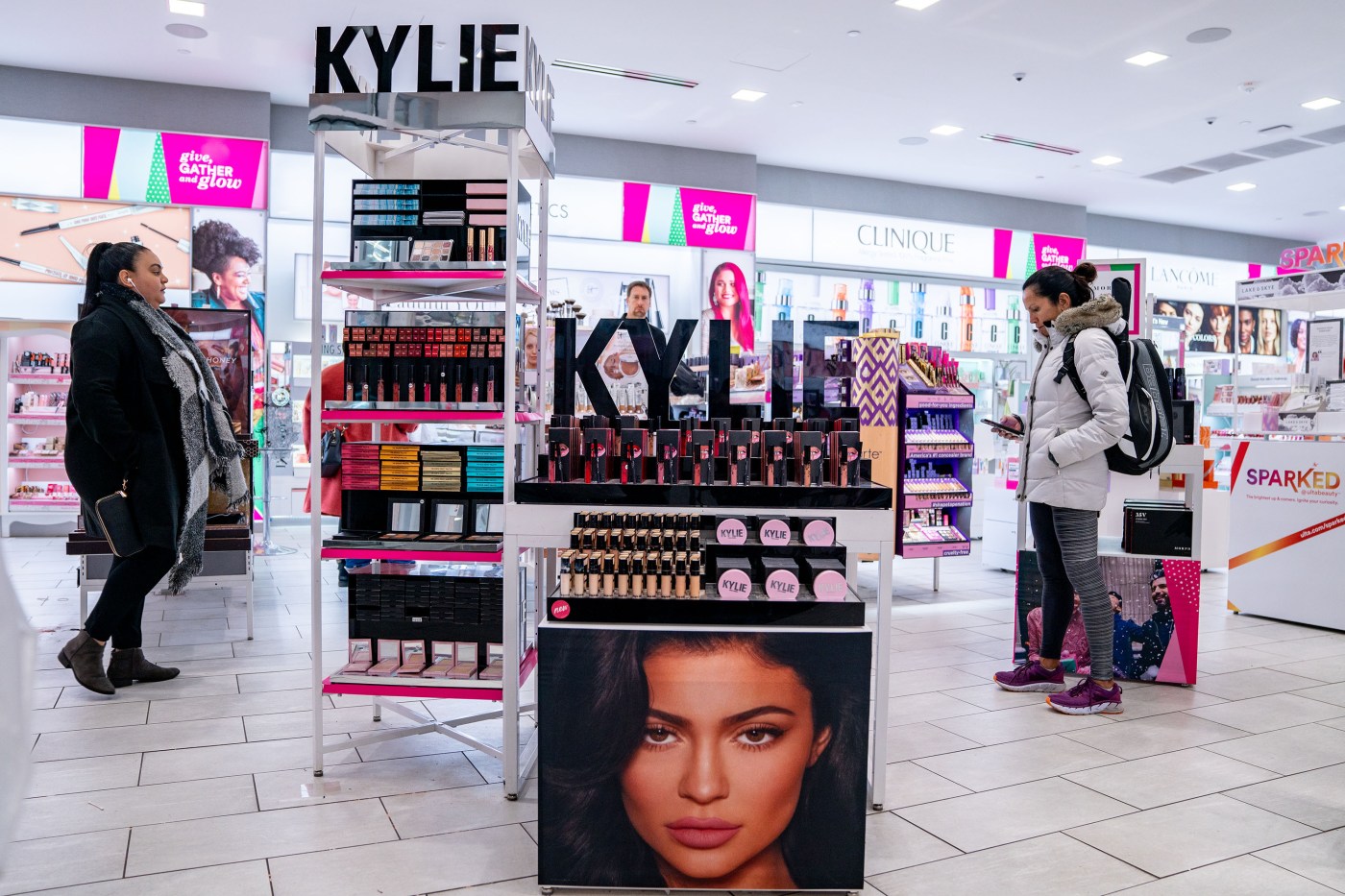
Parents concerned as Gen Alpha hooked on $$ skincare
Fourth-grader Naiya White knows what you think about her twice-daily beauty regimen and her Sephora shopping trips.
“I heard all you guys were freaking out about 10-year-olds using skin care,” she says in a TikTok video posted last month, standing outside a Sephora store in Grand Junction, Colorado. “So let’s go pick some out!”
Moments later, White is making her way down the hot pink Glow Recipe aisle in an oversize Lilo & Stitch T-shirt and sparkly green eyeliner, ticking off her favorite products in rapid succession.
“I’d recommend this avocado cleanser; it’s nourishing and gentle,” she says, holding up a $28 tube of face wash. “The mist is also a yes — it makes your skin look super glowy and it’s hydrating. This moisturizer is also one of my favorites and it smells delicious. The hyaluronic Plum Plump balm is a great sleep mask for lips.”
In conclusion, she says with more than a hint of sass, “For all the cranky, musty, dusty adults out there who think little kids shouldn’t be using skin care … get it together!”
Naiya, 10, is part of a fast-growing army of preteens who are swarming into beauty stores around the country and buying up cleansers, moisturizers, toners, face masks and, in some cases, potent anti-wrinkle serums, exfoliants and peels that are intended to slow the aging process in much older consumers. They’re showing off their multi-hundred-dollar hauls and elaborate morning and nighttime routines on TikTok, where the catchphrase “Sephora Kids” has been hashtagged more than 11,000 times.
The obsession with skin care among Gen Alpha — typically defined as those born between 2010 and 2024 — is leading to a windfall of unexpected business for the booming $164 billion global skin-care industry, which historically has targeted women, not girls. But cosmetics brands and the retailers that carry their products are facing a delicate balancing act as they navigate the phenomenon and figure out how to market to a growing cohort of impressionable customers.
“I don’t want to see younger kids using active ingredients, using exfoliating products, because it’s just not necessary,” said Shai Eisenman, founder and chief executive of Bubble, one of the skin-care lines most coveted by Gen Z and Gen Alpha consumers. “We have a responsibility as a brand, and that responsibility is not to sell as many products as possible.”
In June, cosmetics chain Ulta Beauty released an analysis of customer data that showed members of Gen Alpha become interested in beauty much earlier than their predecessors.
“While Gen Z females started experimenting with beauty products and services around age 13, Gen Alpha is eclipsing them by five years — starting at the average age of 8 for females and males,” the report said. “They also start more concretely defining what beauty means to them around the age of 11.”
The burgeoning skin-care trend, which Ulta Beauty began noticing in the last year, is “driven by the rise of new skincare rituals and trending products on TikTok,” a spokesperson said in a statement, adding that Gen Alpha overwhelmingly views skin care as a form of self-care and wellness.
Skin-care mania has divided millennial parents, many of whom grew up washing their faces in the shower with a bar of soap — if at all — and now are baffled by the multistep get-ready-with-me videos that their children are diligently following on social media.
Dermatologists and estheticians say the unease is more than just the usual hand-wringing of an older generation. They worry influencers are pushing children to splurge on products that in some cases could cause damage to sensitive young skin, and are concerned the craze is kick-starting an unhealthy fixation with physical appearance.
“A lot of tweens and teens are now using anti-aging products, so they’re starting way too young,” said Dr. Carol Cheng, a pediatric dermatologist and an assistant clinical professor of dermatology at UCLA. In recent months, she has seen some patients arrive for their appointments with “bags of products to make sure they’re optimizing what they’re doing.”
“They’re using things like vitamin C serums, salicylic acid, really expensive products that have actives that can actually harm their skin,” Cheng said, referring to active ingredients meant to address specific conditions such as wrinkles and dark spots. Such harsh chemicals, she added, can cause irritation, redness, burning, peeling and stinging.
Amid reports and videos of unsupervised Sephora Kids descending upon the stores en masse, wreaking havoc on product testers and harassing employees, longtime shoppers have taken to the retailer’s online community page to post complaints, including one thread proposing a ban on customers under 16.
Industry professionals say an early introduction to skin care can be a positive thing if messaged correctly.
They’re steering young skin-care enthusiasts away from products with active ingredients and focusing instead on a minimalist approach centered on helping them develop healthy daily habits. The three basics, they say, are appropriate for any age: a gentle cleanser, a hydrating moisturizer and a good sunscreen.
Tribune News Service


